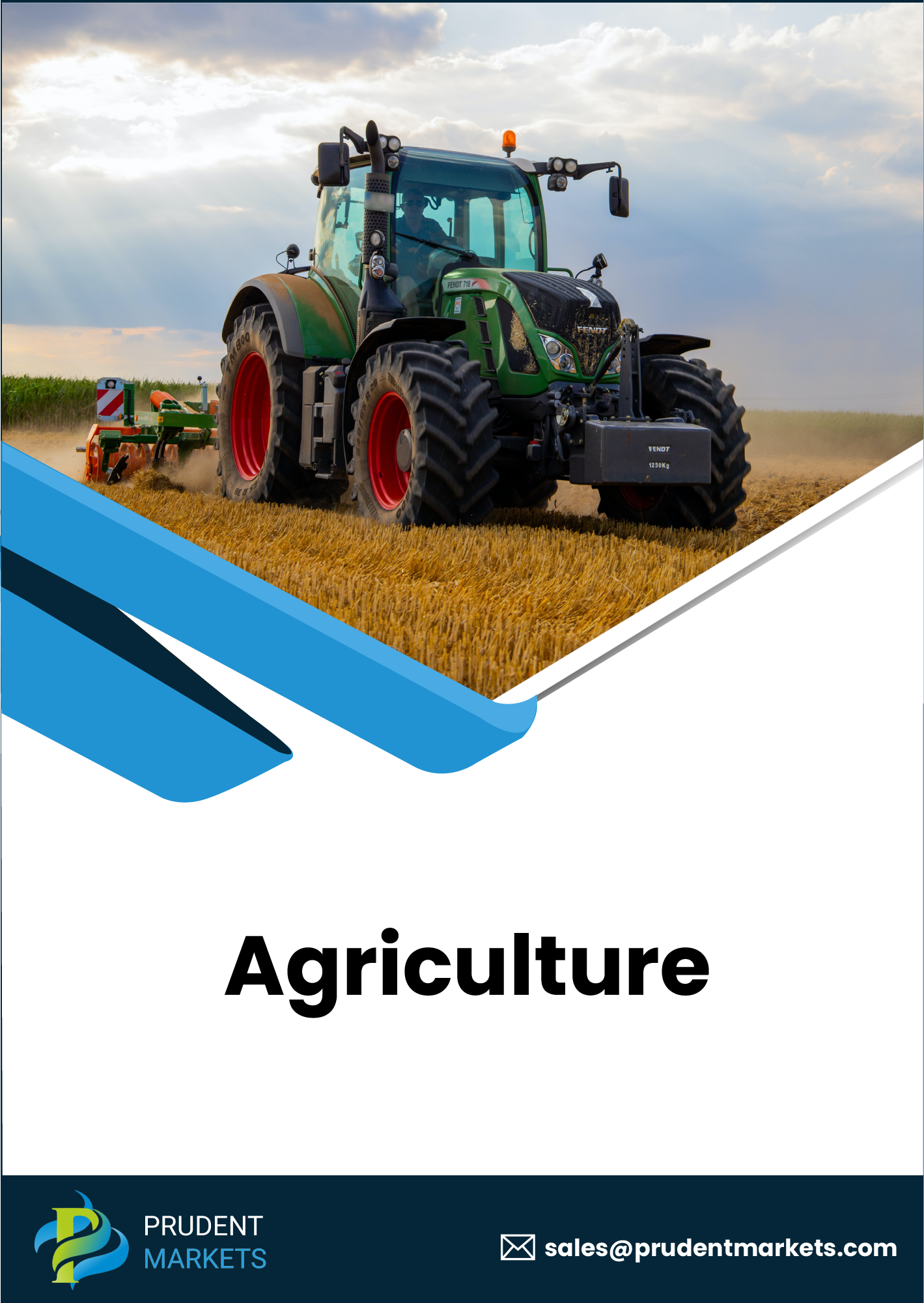
Global Feed Phytogenic Market 2015-2026, With Breakdown Data of Capacity, Sales, Production, Export, Import, Revenue, Price, Cost and Gross Margin
- Published Date: 2020-12-23
- Report ID: 32418
- Pages: 104
-
Format:

Summary
World trade was already slowing in 2019 before COVID 19 outbreak, weighed down by trade tensions and slowing economic growth, such as uncertainty generated from Brexit, the U.S.-China trade war, the Japan-South Korea trade war.
Trade is expected to fall by between 13% and 32% in 2020 as the COVID 19 pandemic disrupts normal economic activity and life around the world, according to the study of WTO.The decline in exports has been mainly due to the ongoing global slowdown, which got aggravated due to the current Covid-19 crisis. The latter resulted in large scale disruptions in supply chains and demand resulting in cancellation of orders.
XYZResearchs analysis shows that as China started reopening its economy, world exports initially recovered across the board. But estimates of the expected recovery in 2021 are uncertain, with outcomes depending largely on the duration of the outbreak and the effectiveness of the policy responses.
This research report indicated that the global Feed Phytogenic market was valued at USD XXX million in 2019, and it is expected to reach a value of USD XXX million by 2026, at a CAGR of XX % over the forecast period 2021-2026. In terms of the export, China occupied more than XX % export market share in 2019, India occupied XX %. XXX is the second largest region around the world, it occupied about XX % export market share in 2019. In terms of the Local Capacity, XXX is the largest region around the world, it occupied about XX % export market share in 2019.
Regional Segmentation (Value; Revenue, USD Million, 2015 - 2026) of Feed Phytogenic Market by XYZResearch Include
China
EU
North America
Japan
India
Southeast Asia
South America
Middle East and Africa
Competitive Analysis; Who are the Major Players in Feed Phytogenic Market
Cargill
DuPont
Kemin Industries
Biomin Holding
Delacon Biotechnik
Dostofarm
Phytobiotics Futterzusatzstoffe
Pancosma
A&A Pharmachem
Phytosynthese
...
Major Type of Feed Phytogenic Covered in XYZResearch report:
Essential Oils
Herbs & Spices
Oleoresins
Mucilage
Echinacea
Application Segments Covered in XYZResearch Market
Swine
Ruminants
Poultry
Equine
Aquatics
Other Animals
For any other requirements, please feel free to contact us and we will provide you customized report.
Table of Contents
Global Feed Phytogenic Market 2015-2026, With Breakdown Data of Capacity, Sales, Production, Export, Import, Revenue, Price, Cost and Gross Margin
1 Market Scope
1.1 Product Details and Introduction
1.1.1 Essential Oils -Product Introduction and Major Manufacturers
1.1.2 Herbs & Spices -Product Introduction and Major Manufacturers
1.1.3 Oleoresins -Product Introduction and Major Manufacturers
1.1.4 Mucilage -Product Introduction and Major Manufacturers
1.1.5 Echinacea -Product Introduction and Major Manufacturers
1.2 Market Snapshot
1.2.1 Major Companies Overview
1.2.2 Market Concentration
1.2.3 Six-Year Compound Annual Growth Rate (CAGR)
2 Regional Market Analysis
2.1 China Feed Phytogenic Status and Prospect (2015-2026)
2.1.1 China Feed Phytogenic Market Size and Growth Rate (2015-2026)
2.1.2 China Feed Phytogenic Local Capacity, Import, Export, Local Consumption Analysis (2015-2020)
2.2 EU Feed Phytogenic Status and Prospect (2015-2026)
2.2.1 EU Feed Phytogenic Market Size and Growth Rate (2015-2026)
2.2.2 EU Feed Phytogenic Local Capacity, Import, Export, Local Consumption Analysis (2015-2020)
2.3 USA Feed Phytogenic Status and Prospect (2015-2026)
2.3.1 USA Feed Phytogenic Market Size and Growth Rate (2015-2026)
2.3.2 USA Feed Phytogenic Local Capacity, Import, Export, Local Consumption Analysis (2015-2020)
2.4 Japan Feed Phytogenic Status and Prospect (2015-2026)
2.4.1 Japan Feed Phytogenic Market Size and Growth Rate (2015-2026)
2.4.2 Japan Feed Phytogenic Local Capacity, Import, Export, Local Consumption Analysis (2015-2020)
2.5 India Feed Phytogenic Status and Prospect (2015-2026)
2.5.1 India Feed Phytogenic Market Size and Growth Rate (2015-2026)
2.5.2 India Feed Phytogenic Local Capacity, Import, Export, Local Consumption Analysis (2015-2020)
2.6 Southeast Asia Feed Phytogenic Status and Prospect (2015-2026)
2.6.1 Southeast Asia Feed Phytogenic Market Size and Growth Rate (2015-2026)
2.6.2 Southeast Asia Feed Phytogenic Local Capacity, Import, Export, Local Consumption Analysis (2015-2020)
2.7 South America Feed Phytogenic Status and Prospect (2015-2026)
2.7.1 South America Feed Phytogenic Market Size and Growth Rate (2015-2026)
2.7.2 South America Feed Phytogenic Local Capacity, Import, Export, Local Consumption Analysis (2015-2020)
2.8 Feed Phytogenic Status and Prospect (2015-2026)
2.8.1 Feed Phytogenic Market Size and Growth Rate (2015-2026)
2.8.2 Feed Phytogenic Local Capacity, Import, Export, Local Consumption Analysis (2015-2020)
3 Global Feed Phytogenic Market Assessment by Segment
3.1 Global Feed Phytogenic Capacity and Growth Rate
3.2 Global Feed Phytogenic Sales by Type
3.3 Global Feed Phytogenic Sales Revenue by Type
3.4 Global Feed Phytogenic Consumption by Application
4 Global Feed Phytogenic Market Assessment by Regions
4.1 Global Feed Phytogenic Production Analysis and Forecast by Regions (2015-2026)
4.2 Global Feed Phytogenic Sales Analysis and Forecast by Regions (2015-2026)
4.3 Global Feed Phytogenic Sales Revenue Analysis and Forecast by Regions (2015-2026)
5 Value Chain (Impact of COVID-19)
5.1 Feed Phytogenic Value Chain Analysis
5.1.1 Upstream
5.1.2 Downstream
5.2 COVID-19 Impact on Feed Phytogenic Industry
5.2.1 Industrial Policy Issued Under the Epidemic Situation
5.3 Cost-Under the Epidemic Situation
5.3.1 Cost of Raw Material
5.4 Channel Analysis
5.4.1 Distribution Channel-Under the Epidemic Situation
5.4.2 Distributors
6 Competitive Landscape
6.1 Global Feed Phytogenic Capacity Market Share of Manufacturers (2019-2020)
6.2 Global Feed Phytogenic Sales Market Share of Manufacturers (2019-2020)
6.3 Global Feed Phytogenic Sales Revenue Market Share of Manufacturers (2019-2020)
7 Feed Phytogenic Competitive Analysis
7.1 Cargill
7.1.1 Cargill Company Profiles
7.1.2 Cargill Product Introduction
7.1.3 Cargill Feed Phytogenic Production, Revenue (2015-2020)
7.1.4 SWOT Analysis
7.2 DuPont
7.2.1 DuPont Company Profiles
7.2.2 DuPont Product Introduction
7.2.3 DuPont Feed Phytogenic Production, Revenue (2015-2020)
7.2.4 SWOT Analysis
7.3 Kemin Industries
7.3.1 Kemin Industries Company Profiles
7.3.2 Kemin Industries Product Introduction
7.3.3 Kemin Industries Feed Phytogenic Production, Revenue (2015-2020)
7.3.4 SWOT Analysis
7.4 Biomin Holding
7.4.1 Biomin Holding Company Profiles
7.4.2 Biomin Holding Product Introduction
7.4.3 Biomin Holding Feed Phytogenic Production, Revenue (2015-2020)
7.4.4 SWOT Analysis
7.5 Delacon Biotechnik
7.5.1 Delacon Biotechnik Company Profiles
7.5.2 Delacon Biotechnik Product Introduction
7.5.3 Delacon Biotechnik Feed Phytogenic Production, Revenue (2015-2020)
7.5.4 SWOT Analysis
7.6 Dostofarm
7.6.1 Dostofarm Company Profiles
7.6.2 Dostofarm Product Introduction
7.6.3 Dostofarm Feed Phytogenic Production, Revenue (2015-2020)
7.6.4 SWOT Analysis
7.7 Phytobiotics Futterzusatzstoffe
7.7.1 Phytobiotics Futterzusatzstoffe Company Profiles
7.7.2 Phytobiotics Futterzusatzstoffe Product Introduction
7.7.3 Phytobiotics Futterzusatzstoffe Feed Phytogenic Production, Revenue (2015-2020)
7.7.4 SWOT Analysis
7.8 Pancosma
7.8.1 Pancosma Company Profiles
7.8.2 Pancosma Product Introduction
7.8.3 Pancosma Feed Phytogenic Production, Revenue (2015-2020)
7.8.4 SWOT Analysis
7.9 A&A Pharmachem
7.9.1 A&A Pharmachem Company Profiles
7.9.2 A&A Pharmachem Product Introduction
7.9.3 A&A Pharmachem Feed Phytogenic Production, Revenue (2015-2020)
7.9.4 SWOT Analysis
7.10 Phytosynthese
7.10.1 Phytosynthese Company Profiles
7.10.2 Phytosynthese Product Introduction
7.10.3 Phytosynthese Feed Phytogenic Production, Revenue (2015-2020)
7.10.4 SWOT Analysis
8 Conclusion

Call Us
( India toll free )
+91 835 605 0278
( US toll free )
+1 800 601 6071
Drop us an email at
sales@prudentmarkets.com
Get your pre and post sales queries resolved by our Subject matter experts.
We will assist you to customize the report to fit your research needs.
Our prime focus is to provide qualitative and accurate data.
Feel free to order a sample report before purchase.
Your personal and confidential information is safe and secured.